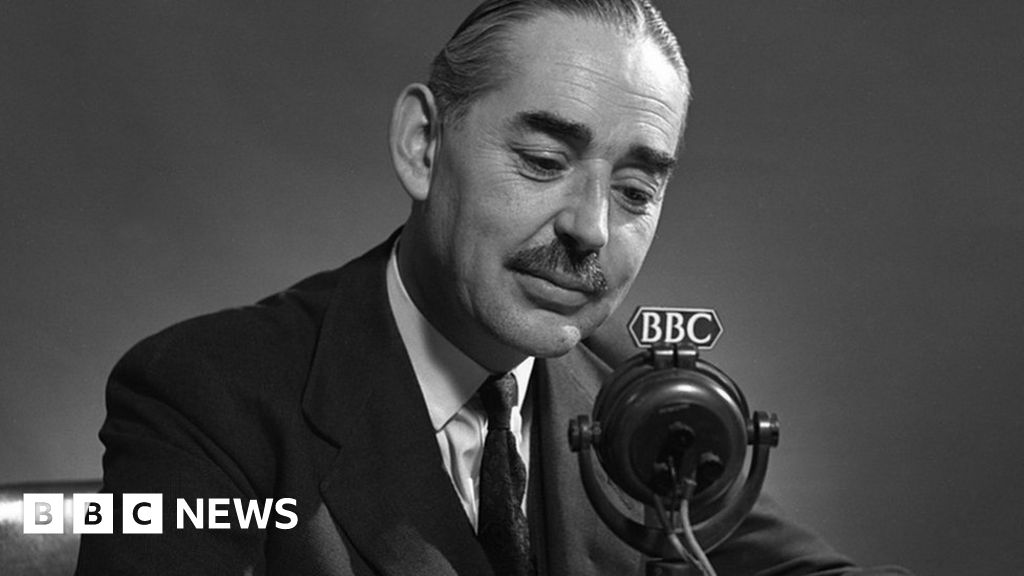About David Hendy
BBC's secret World War Two activities revealed
BBC newsreader John Snagge reported on the D-Day landings
A new archive has revealed the BBC's role In Secret activities during World War Two, including sending coded messages to European resistance groups.
Documents and interviews, released by BBC History, include plans to replace Big Ben 's chimes with a recorded version in The Event of an air attack.
This would ensure the Germans did not know their planes were over Westminster.
BBC programmers would also play music to contact Polish freedom fighters.
Using the codename "Peter Peterkin", that would be broadcast following the Polish news service.
Historian David Hendy said: "The bulletins broadcast to Poland would be deliberately short by a minute or so And Then a secret messenger from The Exiled Polish government would deliver a record to be played.
"The Choice of music would send The Message to fighters. "
Alec Sutherland, The Man who oversaw the use of music at the end of news bulletins, said it was his job to make sure producers played The Right record, even if it was scratched.
"They would see one which they thought would make a better broadcast and the wrong bridge would get blown up in Poland. "
The coded messages to the French resistance in news bulletins were less opaque and consisted of a few phrases dropped into a programme script or foreign language news bulletin.
On The Night of 5 June 1944, the eve of D-Day, the phrase "Berce mon coeur d'une langueur monotone" or "cradle my heart with a monotonous languor" signalled The Invasion was about to begin.
BBC transmitters at Alexandra Palace in north London were also used as part of an RAF operation to distort the navigating system of Luftwaffe bombers, so that they were misled about direction and range.
Other items in the archive include several contemporaneous eye witness accounts of bombing raids of Broadcasting House in 1940 and BBC newsreader John Snagge 's account of The Hours leading up to his first broadcast about the D-Day landings when he was kept under armed guard to stop the news leaking out.
The full Oral History collection, The BBC and World War Two: 100 Voices that made the BBC, is available online at
media, bbc, broadcasting, the blitz, world war two, music, radio
Source of news: bbc.com



